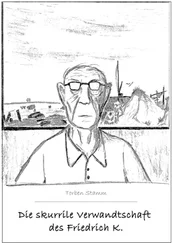Sara dropped the telephone and stared at Victor in consternation. He hung up on me. Come on, said Victor, have a glass of wine. He went on ahead into the kitchen and took an open bottle of wine out of the fridge and a couple of glasses, as though he were at home here. Swimming! said Sara, shaking her head in incomprehension. They shave their body hair. Victor smiled and took a sip of wine. Probably not if they’re kids. He hasn’t heard the last of this, said Sara, I’m not going to stand for it. Probably to distract her, Victor asked how she was getting on with the Rachmaninoff. I’m working on it, she said, but it’s bloody hard. Did you ask at the Academy? She shook her head. They want big names, someone like me wouldn’t stand a chance. You should at least try them, said Victor, we’ve just renewed our sponsorship deal, and I happened to drop your name. And? asked Sara. The conductor said you should get in touch with him. Say hello to him from me. Victor laid his hand on her shoulder. She liked these friendly little gestures and stroked the sleeve of his jacket in return. When are you leaving? Day after tomorrow, he said, his hand still on her shoulder. I’m exhausted, said Sara. Look after yourself. Victor emptied his glass and wished her a happy vacation. Sara said nothing back. They kissed each other good-bye on the cheek.
THE AIR IN THE PIANO ROOM was stale, the yellow curtains half drawn, and it was dusk. Sara watered the philodendron that was growing along the ceiling and sprayed its leaves with leafshine. She had taken over the plant some years back from a pupil who was emigrating to America with her parents. Philodendrons purify the air, the girl claimed, they absorb formaldehyde and other poisons. The shapeless plant with its air roots dangling in space struck Sara as an emblem of her own life, in her slow growth she put out one leaf after another, without the prospect of ever leaving this room.
In the afternoon she called the school office and demanded to speak to the director. She put him in the picture, and complained at the way Michael had simply been allowed to quit. The director said he wasn’t familiar with the particular case, but if the boy wasn’t motivated, there was no sense in forcing him to take lessons. You have enough pupils, he said. That’s not the point. Michael is gifted, it would be a pity if he stopped now. Don’t get so worked up, said the director. We have no leverage, as you very well know.
Sara called Michael’s teacher. He was still more curt with her than the director had been. When she asked what Michael’s grades were like, the teacher said he was not at liberty to divulge such information to her, she should ask his parents. What a pupil did in his or her spare time didn’t matter to him, so long as he did it willingly.
Furiously, Sara leafed through the phone book as if there was anyone there who could help her.
ALL HER FRIENDS seemed to have left town, and so for the next few weeks Sara was mostly at home, practicing the Rachmaninoff or reading. She didn’t feel like going out alone, besides it was too hot. One day she got a postcard from Michael. He had never written to her before, and she took it as a cry for help, even though it was just a few banal sentences on a card. She drafted letters to his parents, furious, factual, imploring, and threw them all away. On the Internet she found the training times of Michael’s swimming club. That afternoon she went to the pool. She hadn’t been there in ages. At school she hadn’t been a good swimmer. Once or twice during her time at the conservatory, she had gone to the lake with her fellow students, but she hadn’t seen the attraction of prancing around half-naked in public. The actual water was always too cold for her anyway.
She looked at herself in the changing room mirror. Her one-piece bathing suit was hopelessly out of fashion, the fabric cracked and dry, the colors faded. She wrapped a towel around her waist so as not to look quite so conspicuous. Then she stepped out uncertainly into the dazzling sun. The big pool was full of people, but there were no lanes. Sara turned to the attendant standing at the edge of the pool. The swimming club trains indoors, he said, not looking at her, and he blew his whistle to call a couple of youngsters to order.
Indoors it was even hotter, but quieter. The chlorine took Sara straight back to her school days and her gym teacher, a sadist who poked fun at the kids who were frightened of water. She had hated swimming lessons so much that she got a stomachache each time. Eventually, her mother had grasped what was happening—but still sent her. Only a couple of lanes of the pool were being used, in which half a dozen kids were swimming laps. A man in shorts and a T-shirt was writing figures and letters on a slate—it seemed to be a sort of code. Sara asked him if he was Michael Bernold’s swimming coach. Yes, he said, and held out his hand. He’s on vacation. I’m … I used to be … his piano teacher, said Sara, shaking hands with the man. She felt naked, and looked down at her body. In the neon-lit hall, her skin looked greenish, and she noticed a nasty-looking pimple in her cleavage. Does he play the piano, then? asked the coach. He’s very talented, said Sara, but he’s giving up, because swimming takes up too much of his time. Too much, the coach repeated, tonelessly. That’s my view, said Sara. I hate the word talent, said the coach. In the end, success comes to whoever trains hardest. That’s what I’ve told him all along. Sara smiled. What is success, in your view? Just a minute, said the coach. He went up to the board, wiped away the letters and numbers, and wrote down some new ones. The children who had been waiting at one end of the pool set off. It looked as though they were being pulled along on ropes, that’s how effortlessly and quickly they were moving. The coach went back to Sara, and pointed to one girl who was just swimming past them. Take Lea. She has an amazing feel for water. Look at her moving. But if she doesn’t train for three or four days, it’ll all be gone, and I can start over. How do you define success? repeated Sara. The main thing is they enjoy themselves, said the coach. Michael has a winner’s instincts. He trains hard. If he didn’t train quite so hard, he’d have time to play the piano, said Sara. Couldn’t you have a word with him? The trainer smiled absently and shook his head. No. Look, I’ve got to work now. Sara remained where she was for a moment and watched the swimmers. Then she circled the pool, took off her towel, and climbed down the steps until the water reached up to her belly. She glanced over at the trainer, but he wasn’t looking.
SARA FELT RELIEVED when the weather finally broke, and it cooled down. Every day she resolved to talk to the chief conductor and make an appointment, but she ended up putting it off, telling herself either he was on holiday or she needed to get a better grip on this or that passage. Victor sent her regular emails from Madeira, attaching photographs of red cliffs and exotic tropical plants. He seemed to be bored in his fancy hotel. Some of the emails, Sara could tell, he had written while drunk, they were so full of typos. She answered briskly, saying there was nothing much happening, the weather was bad, she was practicing hard. After two weeks something changed in the tone of Victor’s emails, he still wrote regularly, but it sounded as though he was just doing it out of a sense of duty. Perhaps he’s met someone, thought Sara. The idea incensed her. Strangely, she had never felt jealous of his wife, and even after his divorce, she had never wanted more from him than their weekly meetings, conversations, and his friendship. But it hurt her to imagine that he might have a lover, a woman who enjoyed more rights and privileges than she did.
The second-to-last holiday weekend, Sara finally called the sponsorship office of the orchestra. She told the man on the other end what it was about. He tried to dissuade her, told her they worked exclusively with agencies and artists of an international reputation. Couldn’t I come along after a rehearsal and play for the conductor for ten minutes? she suggested. Ten minutes isn’t asking a whole lot. He’s terribly busy, said the man on the phone. Finally, Sara had no option but to make use of her connections and drop Victor’s name. The man at the other end was silent for a minute, then he said in an offended tone of voice that he would have a word with the chief conductor and call back.
Читать дальше







![Brian Jacques - [Flying Dutchman 01] - Castaways of the Flying Dutchman](/books/128851/brian-jacques-flying-dutchman-01-thumb.webp)




